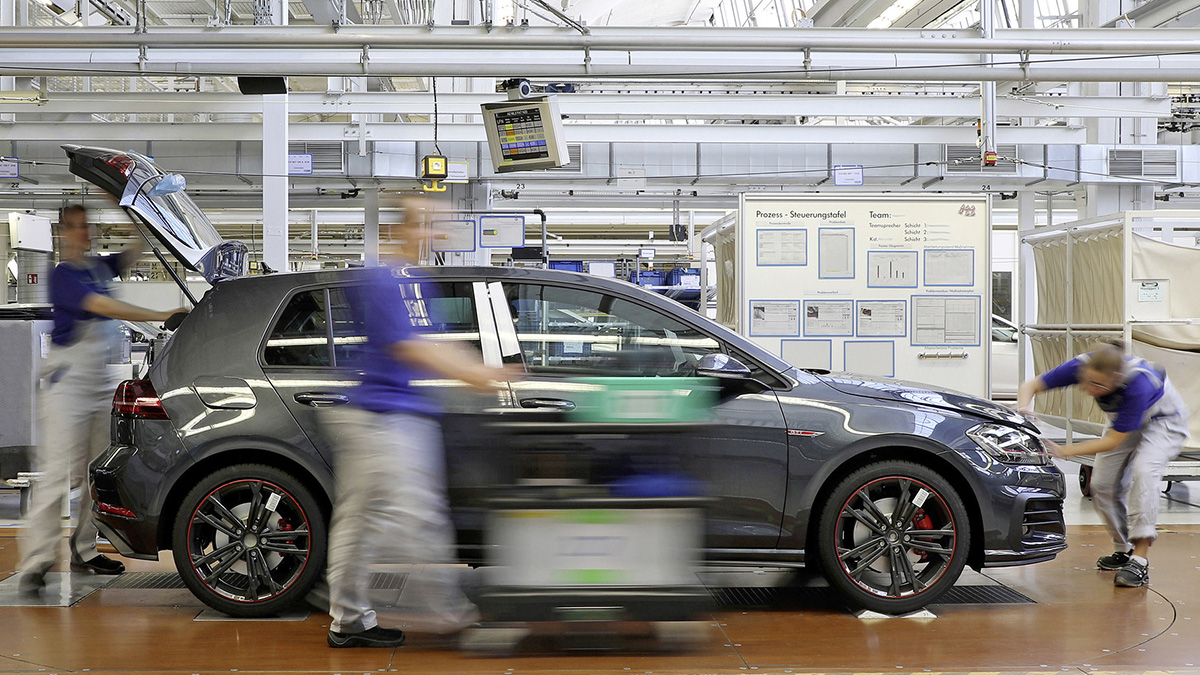The Volkswagen Passenger Cars brand continued its profitable growth in the third quarter of the current fiscal year. Despite a slight decline in deliveries, sales revenue of the Volkswagen Group’s core brand improved to EUR 65.4 billion in the first nine months of 2019, up 4.7 percent compared with the previous year. The growth in sales revenue was primarily driven by mix and price effects.
Operating profit before special items rose to EUR 3.2 billion, an increase of 35 percent on the prior-year period, which had been negatively impacted by the WLTP changeover. The operating return on sales before special items improved to 4.8 percent as of the end of September (previous year: 3.7 percent). Special items from the diesel issue totaled EUR -722 million after nine months (previous year: EUR -1.6 billion).
“The Volkswagen brand has performed very well in the year to date in a challenging operating environment and remains on a profitable growth trajectory. Our product offensive and the measures we have taken to enhance efficiency and profitability are increasingly paying off. This means that we are well on our way to achieving our full-year targets. At the same time, we are working step by step to create the earnings power we need for the successful implementation of our strategy,” says Dr. Arno Antlitz, Chief Financial Officer of the Volkswagen Passenger Cars brand.
Additional market share gained in a declining global market
Despite the challenging macroeconomic environment – especially the slowdown in the global economy as well uncertainty about Brexit and the continuing trade dispute between the USA and China – Volkswagen gained additional market share in many regions of the world. The brand delivered a total of 4,514,600 vehicles between January and September (previous year: 4,622,800). The decline of 2.3 percent was significantly smaller than that of the global market as a whole (-5.0 percent).
Strategic levers continue to show effect
The brand continued its product offensive in all key markets in the current year – with particular focus on the fast-growing SUV segment. Higher demand was recorded in particular for the T-Roc, Tiguan, Touareg and Atlas models. The new T-Cross was also well received by the market. What is more, in October the brand presented the Golf VIII, with deliveries to customers in Germany and Austria expected as early as December 2019. This will be followed by ID.3, which will hit the road only a few months later. Unveiled in September, this compact, mass-produced electric vehicle marks the beginning of Volkswagen’s major electrification initiative.
Out of savings of EUR 3 billion planned by the end of 2020 as a result of the Pact for the Future, around EUR 2.5 billion had already been realized by the end of September 2019. This is set to increase to EUR 2.6 billion by the end of the year.
Significant improvement in net cash flow
The encouraging earnings growth is also reflected in a marked improvement in net cash flow. Adjusted for cash outflows in connection with the diesel issue, the brand’s net cash flow was EUR 2.4 billion after nine months, up significantly on the previous year (EUR -0.5 billion), which had been negatively impacted by the WLTP issue. Despite high levels of costs and capital expenditure in the fourth quarter, full-year net cash flow is now expected to exceed EUR 1 billion.
Full-year forecast and medium-term targets confirmed
The Volkswagen brand continues to expect sales revenue to increase by up to five percent in full-year 2019. The brand still anticipates that the operating return before special items will be in the target corridor of four to five percent – despite the negative effects of additional costs for market launches and startup costs in connection with the continuing product offensive expected in the fourth quarter. The forecast operating return on sales of six percent in 2022 is also being confirmed.

